Celebrating NHLI's 2024 academic promotions
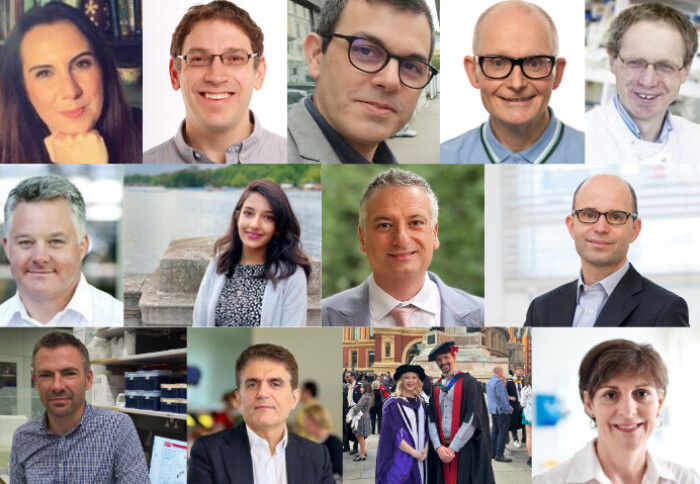
The National Heart and Lung Institute is delighted that 13 of our academics have been recognised in the latest round of promotions across Imperial.
As we celebrate this year’s academic promotions, Professor Clare Lloyd, Head of NHLI, comments “The announcement of the university's annual promotions is always a highlight, and this year is no exception. I'm overjoyed to see such outstanding achievements from so many of our NHLI staff. A huge congratulations to all!”.
We spoke to some of our academics about their promotions and their research.
Asha Patel, promoted to Senior Lecturer in Advanced Therapies
 What is your academic background?
What is your academic background?
I am a pharmacist by training, spending four years in primary care before starting my PhD in Biomaterials for Stem Cell Differentiation at the University of Nottingham. I then secured an EPSRC fellowship to pursue postdoctoral training at MIT where I designed vectors for nebulised delivery of mRNA that cemented my interest in next-generation therapies.
WHAT ARE YOU CURRENTLY WORKING ON?
My group has been awarded funding from the Medical Research Council to investigate the use of RNA technology for respiratory disease including fibrosis and cancer.
How does it feel to receive your promotion?
I’m very proud of achieving promotion after maternity leave. I’m grateful for the support of my department and college initiatives like the Elsie Widdowson fellowship which was crucial for accelerating my return to work.
Luke Allsopp, promoted to Senior Lecturer in Molecular Bacteriology and Respiratory Infection
What is your academic background?
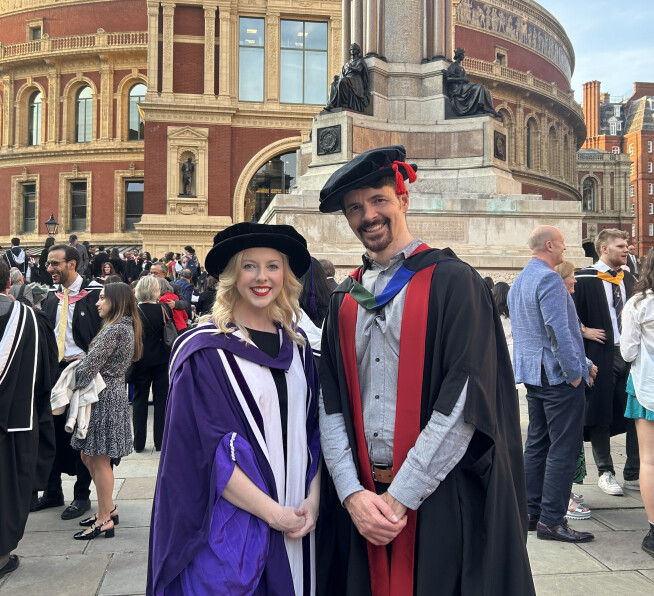
Luke and Alice Collins, his first PhD student
I started my academic journey in Australia with a BSc, followed by an honours year, run like a UK MRes course, and then a PhD from the University of Queensland. During this time, I did a lab visit to the Pasteur in Paris, France for 3 months and this cemented the idea that I wanted an overseas postdoc. I then obtained a postdoc (research associate) position in the Department of Life Sciences and subsequently a Marie Curie Fellowship. In 2019 I moved to NHLI to take up a Lectureship position and started my team and I have just been promoted to Senior Lecturer.
What are you currently working on?
I am fascinated by how tiny, microscopic organisms such as bacteria can cause so many problems to plants, animals and humans. My research team is focused on the opportunistic bacterial pathogen, Pseudomonas aeruginosa, which is a common cause of lung infection in people with the genetic condition Cystic Fibrosis. My team and I are focused on understanding how this organism fights with other bacteria to take over a niche, senses its environment and trying to find ways to combat the increasing rates of antimicrobial resistance with a molecular microbiological approach.
How does it feel to receive your promotion?
I am excited by it. It's great to take a step up the career ladder but it’s also a great recognition of the previous efforts of not just myself but also my team!
I was nudged to apply for promotion by a couple of people in my section. So, thanks to them for helping to make NHLI a great place to work.
Andre Amaral, promoted to Senior Lecturer in Respiratory Epidemiology
 What is your academic background?
What is your academic background?
After a PhD in Ecotoxicology in Portugal, I completed an MSc in Epidemiology and Quantitative Methods in Spain, which was funded through my work at the Spanish National Cancer Research Centre and a fellowship from the Spanish Association against Cancer. Aiming to pursue a career in respiratory epidemiology, I moved to Imperial where I have been focusing on understanding the causes of chronic respiratory diseases and poor lung function in populations around the globe.
What are you currently working on?
I am leveraging on the multinational BOLD study and the UK Biobank to understand better the natural history of chronic obstructive pulmonary disease (COPD) and how to detect this disease earlier in its development. I am also working on finding explanations for the variation in the prevalence of COPD across world regions.
How does it feel to receive your promotion?
I am absolutely delighted to be promoted to Senior Lecturer. I am truly grateful to my family, my amazing team, my incredible mentors, my collaborators and funders as well as the excellent departmental admin staff for the generous support that helped me achieve this promotion.
Mike Emerson, promoted to Professor of Cardiovascular Pharmacology
What is your academic background?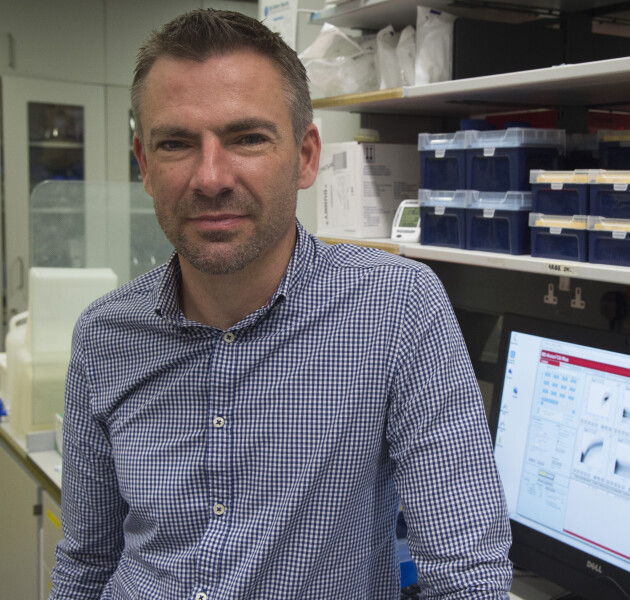
My academic background is a little unusual in that I trained initially in animal physiology as I was interested in veterinary medicine. I changed to human pharmacology at postgraduate level as I felt there were better research opportunities and more diverse career choices. I have been at Imperial for almost 20 years having joined as a probationary lecturer.
What are you currently working on?
Currently, I am working on understanding cardiovascular disease in people with HIV. I am interested in how drugs used to treat HIV and the chronic inflammation associated with HIV in modern-day cohorts affects cell function and influences cardiovascular risk. I am particularly interested in understanding the diverse cohorts of men and women with HIV and in designing studies that incorporate this diversity.
How does it feel to receive your promotion?
My promotion feels very exciting. What has surprised me is how personal the promotion experience is. I was able to talk not only about my research but also about my teaching activities and my broad contribution to the college community, so I feel as if it is a very personalised recognition and I'm really thankful for this.
Paul Kemp, promoted to Professor of the Molecular Biology of Muscle
 What is your academic background?
What is your academic background?
I have a degree in Biochemistry with Chemistry at Southampton University (graduating in 1986 with 1st Class Honors) followed by DPhil from the University of Oxford working in Prof George Radda’s laboratory looking at cardiac energetics using magnetic resonance which was awarded in 1990. I then did a Postdoc in the Department of Biochemistry University of Cambridge with Prof Jim Metcalfe where I went with the intention of learning about molecular biology where we looked at the control of smooth muscle proliferation. I stayed in Cambridge and was awarded a BHF Basic Sciences lectureship looking at the control of smooth muscle cell phenotype in 1996 and from there came to Imperial in 2005.
What are you currently working on?
My current research is looking at the mechanisms that cause skeletal muscle loss in chronic disease and in ageing. In particular, my group looks at patients with COPD and patients in the ICU but we also collaborate with some groups working with sarcopenia in older individuals and with groups looking at heart disease. The most interesting aspects of our work have been looking at microRNAs in the muscle of patients and that has allowed us to develop a model of muscle loss that accounts for the range of muscle loss that occurs in patients with cardio-respiratory diseases and in ageing. We are now looking at the factors that control the expression of these miRNAs as I think that these provide a link between the presence of disease and the loss of muscle. As Head of Assessments for the early years of the MBBS course,e I also have an academic interest in identifying students having difficulty as early as possible in their academic career.
How does it feel to receive your promotion?
I am obviously delighted with being promoted as recognition for the work my group does but I recognise that science and education are both collaborative efforts, so I would like to thank those members of the group who have done a lot of the work and the colleagues here in NHLI and across the university who have helped and supported me in both aspects of the work we have done.
James Pease, promoted to Professor of Leukocyte Biology
 What is your academic background?
What is your academic background?
I studied Biochemistry, first as an undergraduate in Manchester, and then as a PhD student in Sheffield (my home city). My thesis studies focussed on leukocyte chemoattractant receptors, a field I have remained in throughout my career. Post-doctoral positions at Sheffield and the National Institutes of Health, Bethesda, USA were followed by a return to the UK to join Professor Tim Williams’ group at the NHLI. I got a foot on the first rung of the academic ladder at Imperial via a Governors’ lectureship, from where I followed the traditional route of promotion to Senior Lecturer, Reader and finally to Professor.
What are you currently working on?
I continue to be fascinated by how chemoattractants collectively coordinate leukocyte positioning within tissues, in both homeostasis and disease settings such as asthma. Current projects in the group are looking at how impaired leukocyte migration might be exploited diagnostically and therapeutically and also how quite diverse pathogens disrupt chemoattractant signalling to evade the immune system.
How does it feel to receive your promotion?
I am delighted to be promoted to Professor, which is a testament to the continued support of colleagues, students, family and friends. My promotion coincides with an exciting phase for our section as we relocate to our new home within the Dr Victor Phillip Dahdaleh Building on the Hammersmith Campus in 2025. I am looking forward to forging closer links with NHLI colleagues in respiratory, cardiology and beyond.
Joseph Boyle, promoted to Professor of Chemical Systems Pathology
What is your academic background?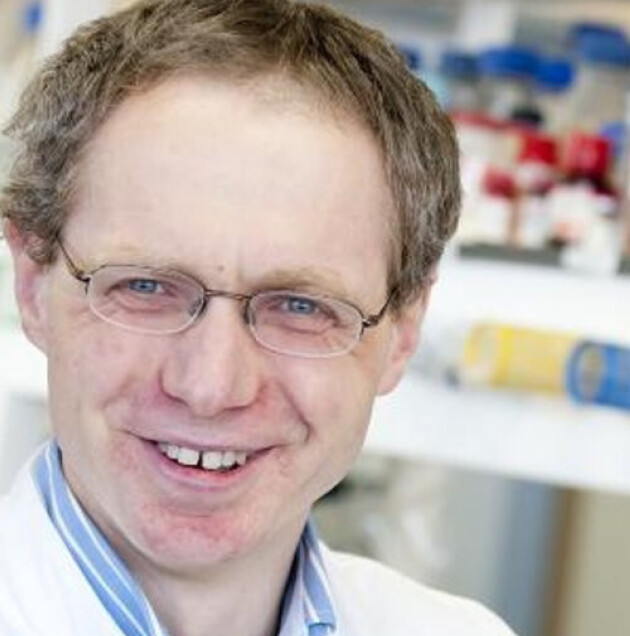
I completed my undergraduate studies at the University of Glasgow, earning a BSc in Pharmacology with First Class Honors, along with a prize for academic excellence. I also obtained my MBChB (Honors) in Medicine, placing in the top four of my year. Later, I pursued my PhD in Medicine from the University of Cambridge in 2001, where my research focused on macrophage-induced death of smooth muscle cells. Additionally, I hold the FRCPath (Fellowship of the Royal College of Pathologists) and am a registered (though not practicing) histopathologist with special interests in renal, cardiovascular, and inflammatory diseases.
What interesting research are you currently working on?
My research career has largely focused on understanding heart attacks and strokes as inflammatory diseases of the blood vessels that supply the heart and brain. This work aims to develop anti-inflammatory treatments for these conditions by leveraging the body’s natural repair mechanisms. Specifically, we seek to "retrain" the inflammatory cells in these diseased vessels to stop attacking them and instead promote healing, as these cells normally do in wound repair.
Currently, my team is working on four major areas of research:
Glow-in-the-dark molecules: We're developing a molecule that lights up upon contact with a key enzyme involved in wound healing. This could potentially be useful in treating sickle cell disease, but further investigation is needed.
Gene regulation in wound healing: We're exploring genes that control two different patterns of wound healing—one that resolves tissue bleeding and another that clears tissue debris from inflammation. We believe that combining both processes in diseased vessels would represent a significant therapeutic breakthrough.
Drug repurposing: We are looking into repurposing existing drugs, particularly those used in rheumatology and pulmonary hypertension, to suppress inflammation in heart attack and stroke patients.
Gene therapy for vessel inflammation: We are also investigating the repurposing of cancer drugs that can regulate gene expression. These therapies appear to counteract the inflammatory switch in diseased vessels, offering a gentler alternative to traditional cancer treatments.
How do you feel about your promotion?
Delighted! I aim to use this wonderful opportunity to help bring the research ideas I have been developing into clinical practice to effect meaningful change. Many of these new approaches will be hugely facilitated by the really unrivalled opportunities at Imperial for collaboration with sciences such as chemistry, physics, engineering and maths. I also hope to use the appointment to encourage people from less traditional backgrounds to follow their interests in a career in academic medicine.
Ramzi Khamis, promoted to Professor of Cardiology
 What is your academic background?
What is your academic background?
I completed my medical training at the University of Bristol, followed by speciality training in GIM and in cardiology as one of the first NIHR Academic Clinical Fellows in cardiology in the UK. I then pursued a PhD at Imperial College London as part of the Wellcome Trust Translational Medicine Programme. On completing my clinical training and a fellowship in interventional cardiology, I was awarded a British Heart Foundation (BHF) Intermediate Clinical Research Fellowship. Since 2016, I have held the position of Clinical Senior Lecturer and Consultant Cardiologist at Imperial.
What research are you currently working on?
My research focuses on the role of inflammation in cardiovascular diseases, particularly in atherosclerosis. My laboratory contributes to the field by investigating vulnerable plaque, molecular targeting of atherosclerosis, and biomarker discovery.
My current research centres on innovative approaches to the detection and treatment of vulnerable plaques in atherosclerosis, with a particular emphasis on antibody-based therapies. One of the most promising areas we are exploring involves the development of antibodies targeting oxidised LDL cholesterol. We are currently working on near-infrared fluorescence imaging techniques, which could enable real-time detection of vulnerable plaques and holds significant potential for early diagnosis and therapeutic targeting. We are investigating nanoparticle therapeutics that combine both diagnostic and treatment capabilities.
Additionally, we're exploring telemedicine solutions to monitor high-risk cardiovascular patients, with the aim of reducing hospital readmissions and improving long-term outcomes in these populations.
How does it feel to receive your promotion?
I am deeply honoured to have been promoted to Professor of Cardiology at Imperial College London. More than anything, I feel fortunate to be part of such a remarkable team. This promotion reflects years of collaboration and support, not only from my colleagues and collaborators but also from my family, who have been with me throughout this journey. In many ways, I see this as their professorship as much as mine, and I'm immensely grateful for their unwavering support over the years.
Louise Fleming, promoted to Professor of Practice in Paediatric Respiratory Medicine
What is your academic background?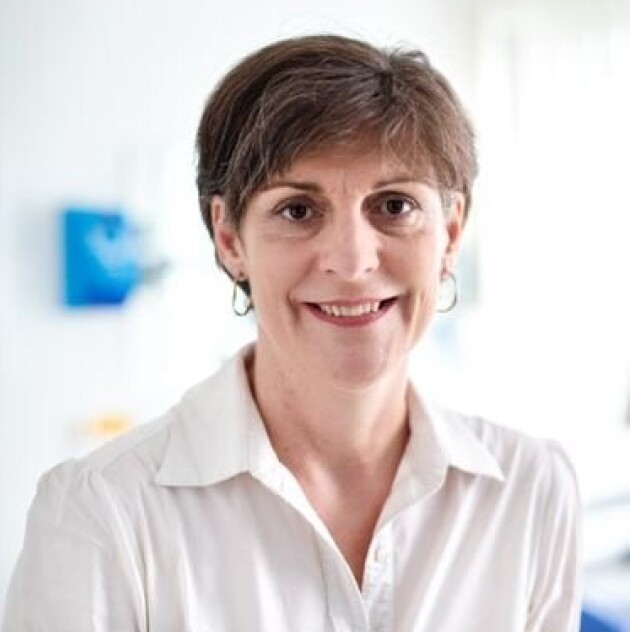
I completed my medical training at Manchester University before specialising in respiratory paediatrics. I became interested in research when I undertook an RCPCH/VSO Fellowship in The Gambia. I undertook my MD at NHLI. My research focussed on inflammatory markers in children with asthma. I have continued to be involved in clinical academia ever since and was awarded an Asthma UK Senior Fellowship. I was previously as a full time academic and was promoted to Clinical Reader at Imperial College. Due to the demands of clinical work, I switched to an NHS role but continue to pursue my academic interests.
What research are you currently working on?
My research aims to improve management and outcomes for children with asthma. I have recently been awarded an HTA grant for a clinical study of anti-inflammatory relievers in children with asthma. It will be the biggest study of its kind and we are about to start recruitment so very exciting times! Other ongoing studies are evaluating novel digital technologies for monitoring asthma, including adherence monitoring.
How do you feel about your promotion?
I am very excited by my promotion and I hope I can be a role model for other clinical academics, particularly women. I am very pleased to continue to be part of Imperial College and it is wonderful to have this recognition. I am also very grateful to all those who have supported me; particularly colleagues at the Royal Brompton and Imperial College Healthcare Trust and my very dear family and friends.
Article text (excluding photos or graphics) © Imperial College London.
Photos and graphics subject to third party copyright used with permission or © Imperial College London.
Reporter
Emily Medcalf
National Heart & Lung Institute